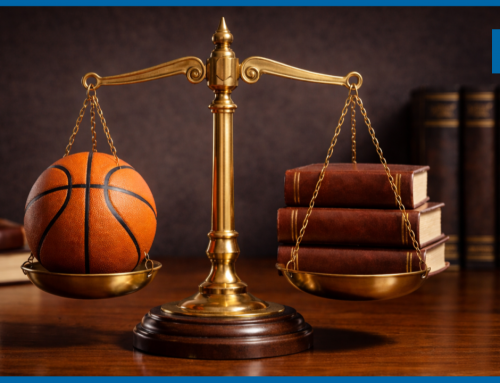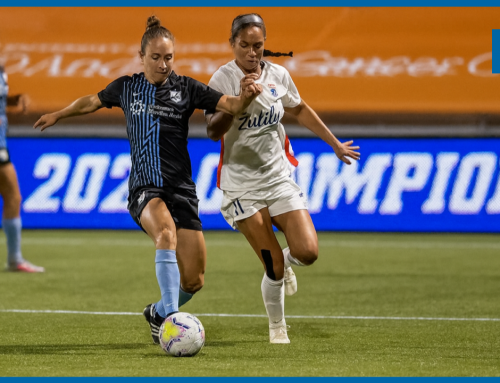Published and translated by the firm Winter – Dávila & Associés
Paris, 2 September 2024
In the modern world of sport, the image rights of athletes, particularly footballers, have become an essential lever for increasing their income and controlling their public image. In France, these rights are specifically regulated and offer various opportunities for sportspeople to develop their personal brand while protecting their interests. This article explores the issues surrounding image rights, with a focus on how players can optimise their management, as well as a concrete example with the recent ‘Mbappé case’.
1- Components of image rights
Individual image rights
Individual image rights in France give each athlete exclusive control over the use of his or her image. This right is protected by law, and any use without the player’s prior consent constitutes a potential violation of his or her privacy.
In France, in principle, footballers can manage their image as they see fit, allowing them to enter into advertising and sponsorship contracts and to promote products, subject to any limits set by their club.
Associated image rights
The associated individual image right is an intermediate category. It allows clubs to use players’ images to promote club activities or competitions without obtaining specific authorisation each time. However, this implicit authorisation does not apply to all uses, and clubs must obtain the players’ agreement for uses other than those provided for in the club’s current activities.
Collective image rights
The collective image concerns the representation of several athletes from the same team. In France, for an image to be considered collective, it must include a certain number of team or club members. This right is often used for joint advertising campaigns or team-related merchandising.
2- Remuneration and optimisation of image rights
Remuneration of footballers in France
Income from image rights in France varies according to the player’s reputation and the way in which his image is used. Footballers may receive royalties based on sales of merchandising products or through lump-sum payments negotiated in their contracts. These agreements must be managed in such a way as to optimise income while minimising conflicts with the player’s contractual obligations.
Tax optimisation: the provisions of the Braillard Law
The 2017 Braillard Law allows French clubs to enter into separate contracts for the exploitation of players’ image rights, with significant tax benefits. Royalties received under this arrangement are exempt from social security contributions if certain conditions are met, in particular that there is no direct link with the player’s salary remuneration.
YOU CAN ALSO READ: Economic rights of a football player: is a third party entitled to claim them?
Creating image rights companies: an effective management tool
The creation of companies dedicated to the management of image rights gives footballers greater control over the commercial exploitation of their image, while benefiting from more advantageous tax treatment. These companies can enter into contracts with clubs and brands, thereby making it possible to separate income from image rights from income from sporting performances.
3- Image rights management
Commercial partnerships
Footballers may enter into a variety of commercial partnerships, which must be carefully negotiated to avoid conflicts of interest and optimise income. In France, it is crucial that these agreements respect the players’ personal values, as illustrated by the case of Kylian Mbappé discussed below, who insists on greater control over the use of his image to align sponsorship activities with his convictions.
Image rights contracts
Image rights contracts must be clear on issues of exclusivity, duration, and restrictions imposed by governing bodies. For example, players must ensure that clubs do not retain their image rights in perpetuity after the end of their contract, and that they comply with current regulations, particularly those prohibiting the promotion of certain industries, such as gambling.

Footballer Kylian Mbappé (photo: pixabay.com)
4- The ‘Mbappé case’: Increasing demands for control
Kylian Mbappé, star of Paris Saint-Germain, is a prime example of the importance of managing image rights. He demands strict control over the use of his image, not least to ensure that his sponsorship activities reflect his personal values. This approach has led to tensions, notably with the French Football Federation (FFF), when he refused to take part in a marketing event that he felt was incompatible with his principles.
The Mbappé case highlights the challenges footballers face in managing their image, particularly in terms of modernising the relationship between players, clubs and federations. With the rapid development of technologies and communication platforms such as social networks and NFTs, it is becoming essential for athletes to protect their public image while maximising their income.
5- Conclusion
For footballers playing in France, managing image rights is a crucial issue that requires a strategic and well-informed approach. Before entering into any agreements concerning their image rights, players should obtain legal and tax advice to avoid pitfalls and maximise commercial opportunities. Striking a balance between individual and collective interests is essential to protect their image and ensure their long-term success, both on and off the pitch.
LEGAL NOTICE: This article has been prepared for informational purposes only. It is not a substitute for legal advice directed to particular circumstances. You should not take or refrain from taking any legal action based on the information contained without first seeking professional, individualized advice based on your own circumstances. The hiring of a lawyer is an important decision that should not be based solely on advertisements.
If you want advice related to the subject of the
article do not hesitate to contact us!
(email: contact@wdassocies.com)










Leave A Comment